This article has been reviewed according to Science X's editorial process and policies. Editors have highlighted the following attributes while ensuring the content's credibility:
fact-checked
peer-reviewed publication
trusted source
proofread
Evolutionary secrets of 'Old Tom' and the killer whales of Eden revealed by genetic study
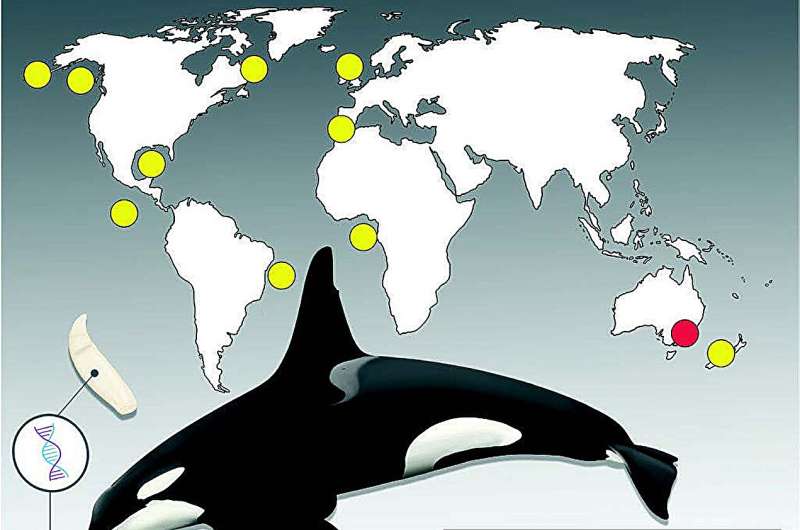
Evolutionary biologists have for the first time decoded the genetic lineage of a famous killer whale and a pod that once worked alongside whale hunters off the coast of New South Wales.
In the Australian tradition of claiming New Zealand's celebrities as its own, Old Tom, the leader of a pod of killer whales that famously helped whalers hunt baleen whales in the 20th century, has ancestral links to modern-day killer whales in New Zealand, according to new DNA research.
Old Tom also shared a common ancestor with killer whales from Australasia, the North Pacific, and North Atlantic Oceans, but is most similar to modern New Zealand killer whales. However, most of Tom's DNA code is not found in other killer whales, globally suggesting that the killer whales of Eden may have become extinct locally.
Known as the killers of Eden, Old Tom and his family would help whalers hunt their target and were rewarded with the lips and tongues from the whale carcass. This is known as the "Law of the Tongue."
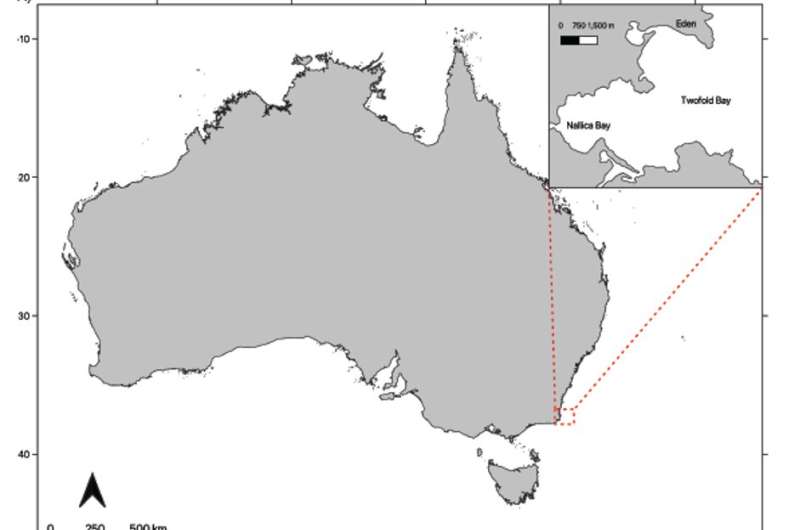
This legendary relationship between the whalers and Old Tom's family persisted and developed a strong bond across many generations of whalers. Measuring 6.7 meters in length and weighing six tons, Old Tom is now on display in the Eden Killer Whale Museum after washing up on shore in 1930.
Led by Ph.D. Candidate Isabella Reeves at Flinders University and the Cetacean Research Centre, a global research team undertook an ambitious journey relying on ancient DNA techniques to attempt to trace Old Tom's genetic lineage through DNA sequencing and comparing his DNA with killer whales globally.
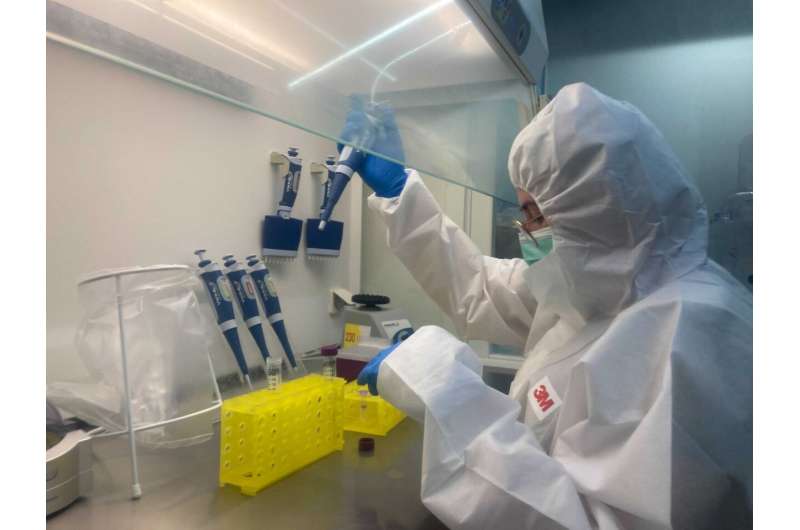
Through collaboration with Thaua Traditional Custodian Steven Holmes, the researchers have also revealed new insights in an attempt to decolonize the history of the Killers of Eden never officially documented before. Lead researcher Isabella Reeves says that while the genetic comparisons didn't find any direct descendants of Old Tom, the researchers did find that Tom shared much of his DNA variation with other killer whales, suggesting they are locally extinct today.
"The killers of Eden represent a rare partnership between people and whales. It was an exciting journey to trace the genetic ancestry of Old Tom, in order to provide the first insights into the genetic history of this group that captured the hearts of the community and whale lovers," notes Reeves.
"Our research also delved into uncharted territory by unveiling a decolonised history. We collaborated with a Traditional Custodian, which gave us a fresh perspective on Eden's whaling history to rectify historical inaccuracies and shed light on a crucial aspect of this unique story about the bond between their people and these whales. Importantly, we want to ensure this aspect of the story is acknowledged moving forward," she adds.
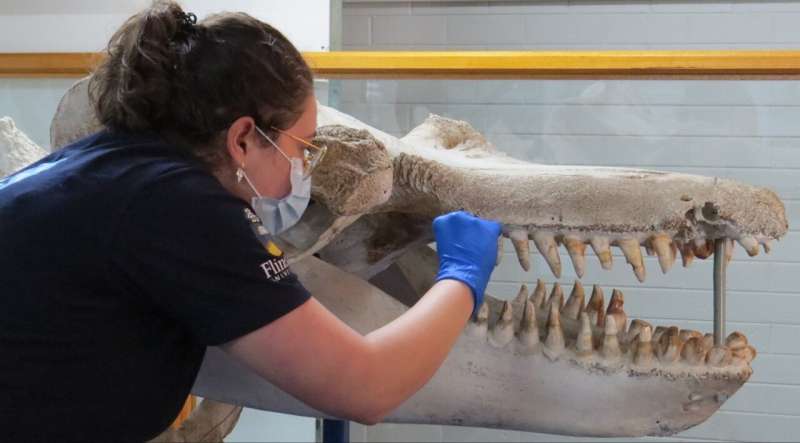
In Twofold Bay, the coastal Thaua people, part of the Yuin nation, had a connection with the killer whales through the Dreaming, a relationship that was highly respected and relied upon due to the Thaua's dependency on the ocean for resources.
"It's important that we recognize that Indigenous Australians initiated the relationship with the killer whales before European colonization and the advent of commercial whaling locally. This study rectifies discrepancies in local records and provides new insight into the origins of the killer whales in Eden and the history of Australasian killer whales," says Ms Reeves.
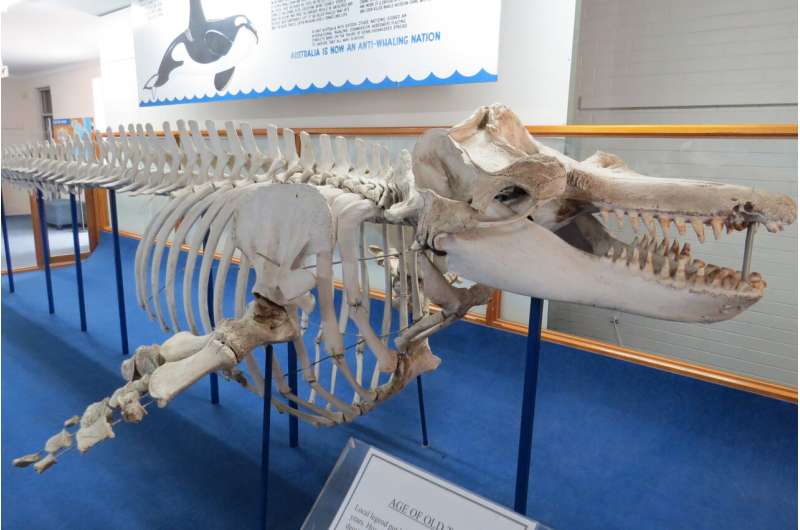
Traditional Custodian Steven Holmes says the Thaua people had a long-lasting friendship with the whales in Eden, especially Old Tom.
"We consider beowas (killer whales) to be our brothers. Our Dreamtime stories, which connect us to the beowas, is that when a Thaua member dies, they are reincarnated as a beowa. The beowas remained part of the Thaua, even after passing. The beowas would help the men by herding the other whales in the bay of Turembulerrer (Twofold Bay) for the whalers to kill. The Indigenous whalers would reward the beowas the tongue of the dead whale. This was soon known as the Law of the Tongue."
More information: Isabella Reeves et al, Ancestry testing of 'Old Tom', a killer whale central to mutualistic interactions with human whalers, Journal Of Heredity (2023). DOI: 10.1093/jhered/esad058
Journal information: Journal of Heredity
Provided by Flinders University





















